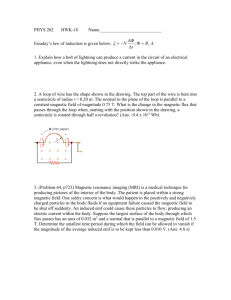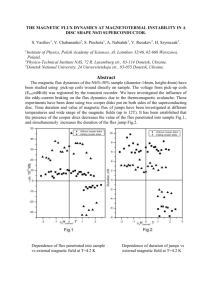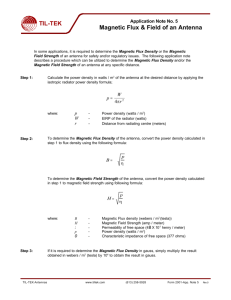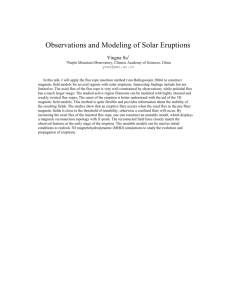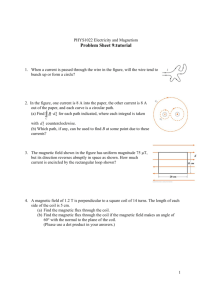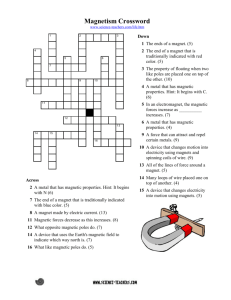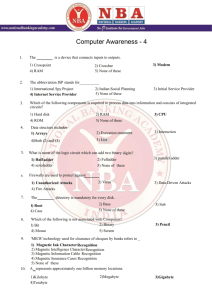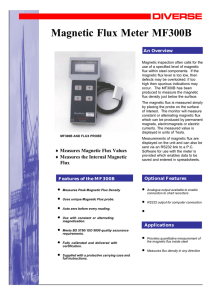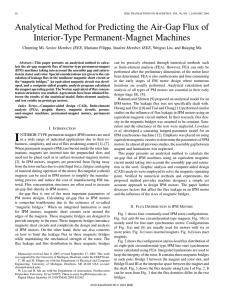Magnetic Fields & Magnetic Field Strength
advertisement
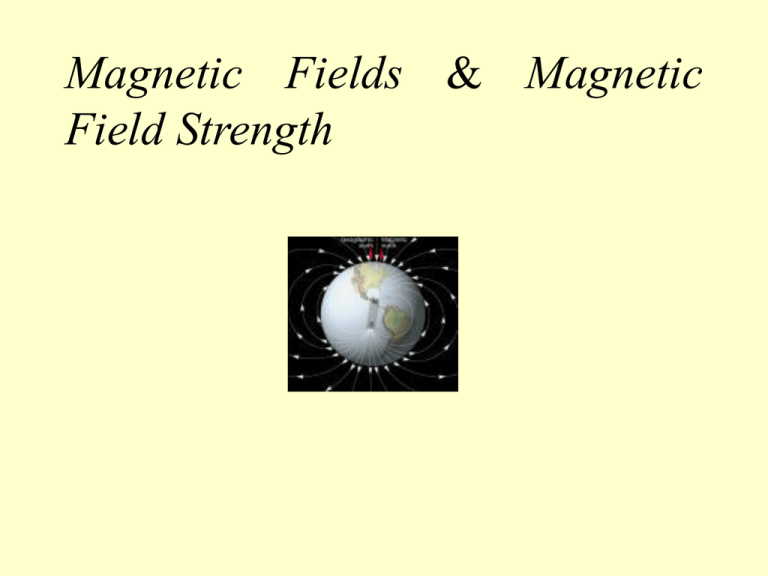
Magnetic Fields & Magnetic Field Strength • We have seen that magnets can exert a force on objects without touching them. For this reason we speak of a magnetic field around a magnet, in the same way that we speak of an electric field around a charged object. • A magnetic field is represented by drawing in "magnetic lines of flux". • These are lines drawn so that a tangent at any point will show the direction of the magnetic field. • The direction of a line of flux is from the North Pole to the South Pole, outside a magnet, from South to North inside the magnet. • (One line of flux may cause many lines of iron filings.) • Weber - one magnetic line of flux is called a Weber (Wb) Wilhelm Eduard Weber • Magnetic Flux - the entire group of lines of flux about a magnet, or in a region is called the magnetic flux. • Symbol is - phi) Magnetic Field Strength • An electric field exerts a straight attractive or repulsive force upon a charged object. • A magnetic field will exert a particular force upon a charged moving object. • This force is perpendicular to the motion of the charge. The force is proportional to the velocity of the moving charge. Two methods of defining magnetic field strength. • in terms of amount of force exerted per unit of moving charge - N/C • Use the idea that magnetic field strength is directly related to the concentration of flux lines. i.e. lines of flux per unit of area. no. of lines Magnetic Field Strength area B A where B is measured in Tesla (T) is measured in Webers (Wb) A is measured in square metres. (m2) • e.g. In a 25m2 area on the Earth, there are 1.25 x 10-3 lines of flux measured. What is the field strength of the Earth's magnetic field? B A 1.25 x10 3 Bearth 25 5 Bearth 5.0 x10 T *note this is a constant value
